#West Hollywood Pride
Text

12-07-23 | WEHO Pride. misterlemonztenth.tumblr.com/archive
67 notes
·
View notes
Text
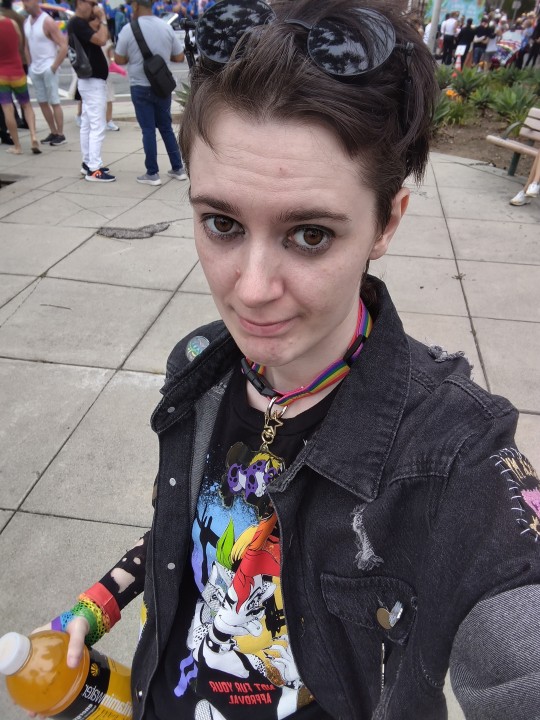
Ya boi in Hollywood for pride🌈
7 notes
·
View notes
Text

Happy pride B-words 🏳️🌈
2 notes
·
View notes
Text
It's very interesting to notice how Disney's Beauty and the Beast draws inspiration not just from other versions of the fairy tale or from Disney's earlier fairy tale features, but from other love stories in classic Hollywood films and literature that were created for adults.
@starberry-cupcake's post on the ways that Disney's BatB changes the tale's core narrative parallel from the Cupid and Psyche myth to Pride and Prejudice is genius. It's slightly astounding that no one on the creative team has ever cited Pride and Prejudice as an influence: but maybe Austen's novel has become enough of a modern myth and influenced so many other love stories and comedies of manners that Disney's creative team really did write the parallels unconsciously. Of course the similarities can be overstated; Belle and the Beast are less mutually flawed than Elizabeth and Darcy, for one thing, and the Beast changes more while Belle changes less than their Austen counterparts do. (I might argue that Belle and the Beast more closely resemble pop culture's simplified ideas of Elizabeth and Darcy than they do Austen's actual characters.) But in terms of plot structure, the parallels are spot-on.
Even if the Austen parallels were accidental, though, the movie's creative team has freely admitted to other inspirations. Screenwriter Linda Woolverton has stated that there's a lot of Katharine Hepburn in Belle. That her characterization in general was strongly influenced by Hepburn's portrayal of Jo in the 1933 film version of Little Women (albeit with her tomboyishness toned down), and that her snappy arguments with the Beast in the dinner-invitation and wound-tending scenes were inspired by Hepburn and Spencer Tracy's similar bickering in their romantic comedies. The animators have also admitted to modeling Belle's appearance after such iconic Hollywood beauties as Elizabeth Taylor, Audrey Hepburn, and Natalie Wood. Photos of those three ladies were kept in the studio for the artists to literally draw inspiration from.
Then there are the other obvious parallels with other movies, which I seem to remember the trivia page of IMDB.com pointing out. For example, there are some obvious parallels with The Wizard of Oz. Belle's iconic blue and white peasant dress looks similar to Dorothy's iconic blue and white gingham dress, and like Dorothy, she's a dreamer trapped in a mundane workaday world, who longs to escape and have new experiences. The Beast's brief "stupid" hairdo during his makeover scene, with its curls and ribbons, also looks like the Cowardly Lion's mane after his makeover, while Lumiere, Cogsworth, and Mrs. Potts can respectively be viewed as counterparts to the Scarecrow, Tin Man, and Cowardly Lion themselves. A likable, helpful trio of sidekicks, with Lumiere as the unofficial leader who has all the bright ideas (no pun intended), Mrs. Potts as the kindest and gentlest one despite being made of a hard, cold substance, and Cogsworth as the comically nervous one who nonetheless proves to be braver than he seems. Meanwhile, a shout-out to another classic movie occurs when Belle stands on the grassy hill and sings "I want adventure in the great wide somewhere": an obvious homage to Julie Andrews' Maria at the beginning of The Sound of Music. Appropriately, we could argue that the plot structure of Disney's BatB mirrors The Sound of Music just as much as it does Pride and Prejudice. A free-spirited heroine doesn't fit in with her community; then she unexpectedly goes to live in a new household run by an unhappy, aloof master; at first she clashes with him, but soon she brings warmth and joy back into his life and softens his heart; their growing love for each other culminates in a romantic dance scene, after which she briefly leaves him and runs back to her old home (although for different reasons); but ultimately she goes back to him and they end up together. Fortunately, there are no Nazis in Beauty and the Beast to darken Belle and the Prince's newlywed life.
IMDB.com also notes some parallels with the 1958 Leslie Caron movie Gigi. The young male lead played by Louis Jourdan in that film is named Gaston. Like Disney's Gaston he's a playboy with a cocky attitude, and Gigi refuses to be his mistress just like Belle refuses to be her Gaston's wife. The characters go in completely different directions, though, since Gigi's Gaston redeems himself and gets the girl in the end, while the Beauty and the Beast Gaston... not so much. Lumiere's characterization is also clearly based on Maurice Chevalier, who plays a major role (and sings his most famous song, "Thank Heaven for Little Girls") in Gigi too.
Then there's the Beast's "death" in Belle's arms, which seems to draw strong inspiration from two romantic death scenes in earlier Hollywood classics. First of all, the camera angles are nearly identical to those of Tony's death in Maria's arms in the original 1961 version of West Side Story, as I remember IMDB.com pointing out. The fact Belle's appearance was already partly modeled after Natalie Wood probably helped to bring that scene to the animators' minds. But I also think they drew inspiration from another famous Hollywood death scene: the death of Greta Garbo's Marguerite in 1936's Camille. I've never seen anyone else notice the similarity, probably because the characters' genders are reversed, but I've noticed it ever since I first saw the Camille scene in the 1982 version of Annie. The dialogue has clear parallels, with the dying character resigned to their fate because death will set them free from their life as an outcast (the Beast's "Maybe it's better this way" echoes Marguerite's "Perhaps it's better if I live in your heart, where the world can't see me"), while their lover urges them "Don't think such things"/"Don't talk like that" and tries to convince them that everything will be fine. Then the moment of death is conveyed by Marguerite and the Beast's eyes, as they roll upward and then drift closed, and the reactions of Belle and Robert Taylor's Armand are very similar, as they both pause in horror, then plead "No, no... don't leave me..." and bury their faces in their beloved's chest in anguish.
In all these inspirations and homages, I think it shows that with Beauty and the Beast, Disney set out to create not just another children's movie, but a movie in the spirit of a Golden Age Hollywood classic that adults could enjoy too. In particular, they set out to create a genuinely romantic picture, which adult couples could enjoy as a "date movie" just as much as their kids would enjoy it as a fairy tale. And as we all know, they succeeded with flying colors!
@ariel-seagull-wings, @themousefromfantasyland, @the-blue-fairie, @thealmightyemprex, @littlewomenpodcast, @adarkrainbow
#disney#beauty and the beast#1991#fairy tale#animated film#pride and prejudice#katharine hepburn#spencer tracy#little women#the wizard of oz#the sound of music#gigi#west side story#camille#classic hollywood#romance
196 notes
·
View notes
Photo

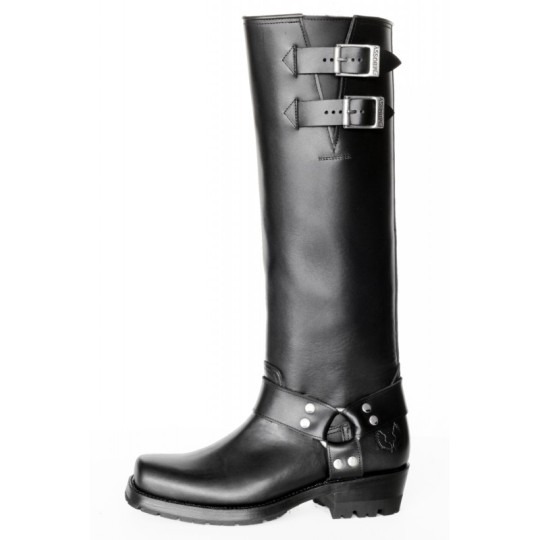
Olly Alexander wearing Embossy Harness Boss 20" boots at the Outloud Raising Voices Musical Festival - WEHO Pride (June 5, 2022).
#Olly Alexander#Years & Years#Years and Years#style#Night Call#The Night Call Tour#Night Call Tour#It's a Sin#pride#Sweet Talker#Sooner or Later#STARSTRUCK#Crave#Hallucination#gig#festival#WEHO Pride#West Hollywood#Outloud Raising Voices Musical Festival - WEHO Pride#Outloud Raising Voices Musical Festival#jon viscott#boots#biker boots#Embossy#Harness Boss 20" boots
3 notes
·
View notes
Text
West Hollywood California. Have a Happy Holidays to all at Weho aka West Hollywood.


West Hollywood California. Have a Happy Holidays to all at Weho aka West Hollywood.
West Hollywood
#West Hollywood#Hollywood#West Hollywood California#CALIFORNIA#Weho#Weho West Hollywood#California#Cali#Socal#Norcal#Southern california#Lgbt#Gay pride#Muscle#Muscle men#Muscle boys#Shirtless#Muscle flex#Muscle flexing#Shredded#Ripped#Ripped body#Shredded body#Jock#Hunk#Stud#Muscles#Muscle worship#Los angeles#Los angeles county
0 notes
Note
I hope you know that literally nobody is going to be able to live up to the standard you, V*v, and Glitch have set and your arrogance and exploitation of your fanbase and connections has screwed millions of creatives out of their dreams because Hollywood is a joke that isn't worth telling and wealthy e-celebs like yourself have claimed the indie scene all to yourselves and moved the goalposts into the stratosphere.
Nope. This isn't a zero sum game. There is not some limited, prescribed number of indie trophy slots that a few studios greedily filled up, blocking everyone else out. That is not how it works. Nothing any other creator is doing - short of personally sending hired goons to your doorstep or stealing your credit cards - is taking anything away from you or preventing your success. In fact if an indie creator can manage to demonstrate that they've got something viable going, it may help to map out a pathway for others.
I think I'm not going to bother trying to address whether or not cartoons in return for support from fans - an entirely voluntary exchange - constitutes exploitation. And I'm living in the Midwest driving a 2007 economy car with 200k+ miles on it, but let's just skip past the assumptions that I'm wealthy and connected too.
Instead, let's get to the weirdly myopic notion that the indie scene is held captive by three studios. Maybe YouTube algorithms or Twitter bubbles are somewhat to blame, but in actuality there are so, so many individual people, friend groups, and small production houses out there making independent animation, I cannot possibly name them all.
Here are some anyway:
Far-Fetched
Worthikids
Satina | Scumhouse
Noodle and Bun
Punch Punch Forever
Ramshackle
Noodle
Papajoolia | Pipi
Angel Hare | The East Patch
Jonni Peppers
Salad Fingers
Monkey Wrench
Studio Heartbreak
Felix Colgrave
JelloApocalypse
Odd1sout (started indie, got picked up by Netflix)
Allie Mehner
JaidenAnimations
Lumi and the Great Big Galaxy
Cloudrise | The Worlds Divide
Telepurte
RubberRoss
James Lee
ENA
Godspeed | Olan Rogers
Ollie and Scoops
Meat Canyon
Port by the Sea
Kekeflipnote
Boxtown
Kevin Temmer
Weebl
Joel Haver
CircleToons
Long Gone Gulch
Atlas and the Stars
Animist
Skibidi Toilet
A Fox in Space
Alex Henderson
Talon
Toniko Pantoja
Sr. Pelo
Hullabaloo
Kane Pixels (started indie, picked up by A24)
Homestar Runner
Fennah
Gods' School
Alan Becker
Dungeon Flippers
JazLyte
Psychicpebbles (started indie, Smiling Friends picked up by AS)
Piemations
vewn
Metal Family
Dead Sound
chluaid
Jacknjellify
Betsy Lee | No Evil
My Pride
Cranbersher
GeoExe | Gwain Saga
Horatio the Vampire
Mech West
Playground | Rodrigo Sousa
The Brave Locomotive
Finchwing (+ many other Warrior Cats animators)
Quazies
SamBakZa
Kamikaze: Trial by Fire
By no means a full list. That's just YouTube, and mostly just English language stuff, and I didn't even get to the multitudes of Warrior Cats animation collabs.
The point is, the indie landscape is vast and populated by creators new and old, making all kinds of animated media from skits, to shows, to ARGs, to films. Audience sizes vary as much as the content, stylistic approaches, subject matter, and budgets do. There are no compliance standards, no gateways to entry, no goalposts. There's not even any preset definition of success except what you decide for yourself.
Anyway, instead of nurturing your resentments, consider making something. I assure you, it's a far more rewarding use of your time and energy, and pretty much no one can stop you.
-------------
EDIT- Made some additions to the list based on comments. Thanks!
#lackadaisy#lackadaisycats#animation#indie animation#this is not a list of moral endorsements#please don't come at me with your internet dramas
6K notes
·
View notes
Text

0 notes
Text
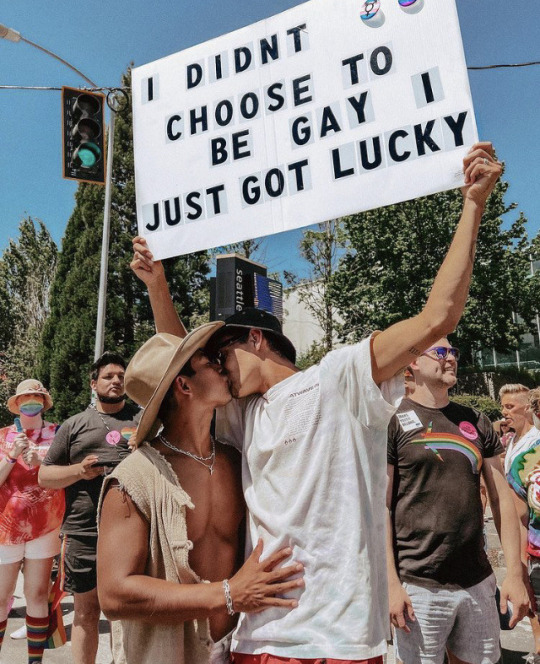
03-13-24 | West Hollywood Pride. misterlemonztenth.tumblr.com/archive
#misterlemonztenth#original post#popular#male model#LGBTQ+#Pride#gay pride#protest#sign#gay kiss#west hollywood#california
19 notes
·
View notes
Text
youtube
@nyancrimew
#free Xodiak#where's xodiak?#no cops at pride#pride#queer#lgbt#trans#Youtube#police brutality#news#please rb#call the DA#email the west Hollywood mayor#call the ACLU of their state#get publicity out#queer community#lgbt community#acab#bi#lesbian#gay#non binary#aromanticism#aro#ace#I'm going to @ some famous people#it wouldn't let me blaze but you can
1 note
·
View note
Text
Any SoCal mutuals going to WeHo Pride??
I need someone to hang out with =)
I’ll buy you a drink!
Also, my dumbass bought an extra weekend wristband, if you need one!
0 notes
Text
seeing gay/ trans flags means way more to me in shitty places like utah than it does in somewhere like LA
#just To Be Real#you see a lot of them in SLC which makes me happy :)#and then i go to west hollywood and im like okay well everyone heres gay so#not to say i dont still appreciate i just mean i appreciate the perseverance and rebellion required to fly a pride flag in a state where#-people want you dead. yknow?
1 note
·
View note
Text
26 July update from WGA's Chris Keyser
youtube
From the WGA: With SAG-AFTRA now on strike and new levels of solidarity across all Hollywood unions, we are witnessing the spectacular failure of the AMPTP’s negotiating strategy. In this video, WGA Negotiating Committee Co-Chair Chris Keyser lays out what this moment means and how we move forward. To learn more about the WGA strike, visit https://www.wgastrike.org.
FULL TRANSCRIPT:
Fellow members of the WGA East and West. It's been a while since our last video and quite a bit has happened in the meantime. So on behalf of the negotiating committee and leadership, I wanted to give you an update on where we are and what the near future at least is likely to bring.
We've been walking side by side on picket lines in New York and Los Angeles for a little over 12 weeks now. Only now we're joined by thousands upon thousands of members of SAG-AFTRA who, like us, have finally had enough.
This is the endpoint and the fruit of the AMPTP’s game plan. For 11 weeks, they negotiated with everyone but us. They claimed it was just practicality, that they could only do one thing at a time, which is not normally a point of pride. But events have made clear what we knew from the start: that not only was it a strategy, it was their only strategy. Negotiate a deal with a single guild and impose that deal on every other guild and union in Hollywood, whether it addresses the needs of those unions or not, all with the implicit threat: if you want more, strike for it.
Wow. It’s their 2007-8 playbook applied to 2023 as if nothing has changed, as if the accumulation of economic insults and injuries inflicted on us over the past decade would be borne in perpetual silence, as if the giant of labor had not awakened. But it has. And you only need to look as far as the front gates of every studio in LA and New York to see the evidence.
Two unions on strike willing to exercise their power, despite the pain, to ensure their members get the contract they deserve. For us, that means addressing the relentless mistreatment of screenwriters, which has only been exacerbated by the move to streaming; the continued denial of full MBA protection to comedy variety and other appendix A writers when they work in streaming; and the self-destructive unsustainable dismantling of the process by which episodic television is made and episodic television writers are paid.
It means addressing the existential threat of AI and the insufficiency of streaming residual formulas, including the need for transparency and a success-based component. All of these will need to be addressed for there to be a deal because in this strike it is our power and not their pattern that matters, not their strategy. Their strategy has failed them. Now they're in the midst of a streaming war with each other, an admittedly difficult transition. And as they face the future, their interests and business models could not be more different from Disney to Sony to Netflix to Amazon.
We root for their success, all of them. They root for each other's failure. We are the creative ammunition through which they will succeed. They are each other's apex predators. And yet, in a singular shared dedication to denying labor, they have shackled themselves together in what increasingly seems like a mutual suicide pact, as the 2023-24 broadcast season and the 2024-25 movie schedule and its streaming shows disappear, melt away week by week.
So what does this mean? What does it mean going forward? How do you play chess against an opponent who insists on screaming checkmate at every move regardless of how the board looks and the game is going?
You stay firm, you stay resolved, because our cause is no less existential than when we started and our leverage is increasing every day. Alone we withheld our labor with the support of our union siblings and the Teamsters and IATSE and the Crafts, we were able to delay the vast majority of production. Now with SAG-AFTRA on strike, those few studio projects that remained have also shut down. And it's not just the obvious delays. If this strike drags on, it's the actors with conflicting obligations and the directors and the double-booked studio facilities and release date chaos that the companies must now also contend with. Some of their most valuable product could well be delayed for years.
Add to that, no promotion of movies or television shows and famous faces on the picket lines and social media speaking directly to their customers. For the tech companies and the mega corporations, that should be their nightmare scenario: WGA and SAG-AFTRA side by side. Our bargaining agenda may not be identical, but our cause is the same. Our army of labor, defending labor has increased 17-fold in the past two weeks alone.
Even so, even with all this wind at our backs this negotiation won't happen overnight. It's not because the negotiations themselves are so complex. Once the companies fully engage, it could go very quickly, but because their strategy of many decades has just fallen apart and they didn't see it coming, and it's going to take them a minute to regroup, 'cause the companies have things to work out internally, and saying no to labor in unison is a lot easier than saying yes. So either together or separately, as their divergent interests might suggest, they will come back to us, despite their understandable concern about how they've navigated this transition to streaming, which is on their heads and not ours; and their worries about costs and their worries about Wall Street; despite this being a season of doom and gloom, none of them are walking away from the riches of this business, and certainly not over the equitable minimum compensation to writers.
They didn't get the deal they wanted; that's fine, it happens all the time. They're not taking their ball and going home over it. And since we know they come from union families themselves, and since they've denied that “even-in-Hollywood-you-have-got-to-be-kidding-me” ugliness of threatening to starve us out and leave us homeless (which we assume they understand also means making our children homeless,) they will come back to us. Although I will say they took a long time to deny that statement, longer than I would have had it been ascribed to me.
But what does it matter? You can starve a labor force slowly or quickly. The effect is the same. It's not like day rates for comedy variety writers and endless free drafts for screenwriters in exchange for a single paid one in four-week mini-rooms isn't cruelty. It's just cruelty written in contract language instead of a press quote.
So what can we expect from the companies as all of this plays itself out? They will try to convince Wall Street that taking a strike, prolonging it unnecessarily, losing their content stream in the process—that all of that is just smart business and no reason for investor concern. We will be talking to Wall Street too, and reminding them that for all these companies, all of 'em including Netflix, the bill, the price for making nothing, will eventually come due. And Wall Street is listening already. Here's Michael Pachter, managing director of equity research at Wedbush on Yahoo Finance the other day: “I think the studios are completely wrong on this one. Content is their lifeblood. They're feeling really foolish about this."
Wall Street isn't the only one listening. We've been talking to union pension funds too about the risks the companies are taking. We talked to CalPERS, the largest public pension plan in the country, talked about the loss of programming and the cost to the industry, and we heard strong support from its board for our struggle and the promise that the companies will be hearing from them, from CalPERS, and demanding answers on behalf of its 2 million members.
To us, of course, they will continue to plead temporary poverty, but we know the drill. These companies support billions into the streaming wars and taken short-term losses these past three years, because they know that to the winner will go the spoils. We're patient, will they share that with us when the time comes? What are the chances?
Since 2017, the last time the studios negotiated with us outside of COVID, the big six companies alone have made $150 billion in profits off our work, while they slashed our pay and degraded our working conditions. Maybe if they had shared a tiny piece of that then, made $1 billion or so less, this year wouldn't seem so costly. As it is, there is no iron law that these companies are entitled to record profits every year, and it isn't some great travesty if their shareholders or their CEOs get a slightly smaller slice of the massive profits we helped create if some balance is restored.
Look, no one denies that corporations exist to make a profit and no one wants our employers to be profitable more than we do, but the singular pursuit of corporate profits to the exclusion of their social and human cost is a real problem in this country—it’s a real problem. A corporation's bottom line is not the same as the world’s, and there is nothing in our studio's bottom lines today that accounts for the quality of our lives or for our dignity, for the comfort of our retirement or the security of our families. Their numbers have no conscience, but the people who report them as victories ought to.
In their refusal to recognize that, these companies have also extracted an awful price, which is laid at their feet and for which they are responsible. Losses to the economies of New York and Los Angeles and everywhere that film and television are made, terrible losses that mount every day, thousands of people out of work; not just us, all the crews, the crafts, the janitors, the drivers, the businesses that thrive when Hollywood thrives, the restaurants, the stores—for what? For nothing. So they could avoid coming to the table to negotiate the deal they will one day give us. Measured today that is the painfully mixed legacy of our employers, weighed against every beautiful piece of work we have made with them.
And if history is a guide, they have only temporary stewardship over a kind of national trust, which is Hollywood. Our story, our sometimes conscience, our public conversation, our diversion of the worst and best of times, our greatest export, the repository of our imagination. They have some obligation to more than just their shareholders to behave accordingly.
Unfortunately, it seems big tech, mega corporations, and some of the people who run them, as the saying goes know the price of everything and the value of nothing. So they have built a business model that no longer works for human beings who cannot be paid minimum for 10 to 20 weeks a year and make a career out of that, be paid for one draft of a screenplay that demands a year of labor, be paid a few episodic fees for a show about which to take years to decide be paid a daily rate.
And now we have a first glimpse of what they offered our actor colleagues. We are not 170,000 Willy Lomans to be used and then discarded. We know what the companies believe they have the power to do. We know what they think machines can do and do without any of us. Oh yeah, we've seen the writing on the wall and it's plagiarized.
The thing is this: the difference between what you CAN do and what you SHOULD do is the greatest single difference in the world. Knowing that is the only real protection we have against a dystopian future. And if the companies sometimes forget that, writers will do it for them.
I can't know exactly how long it will take this revolutionary moment, and you've heard again and again what is happening today has not happened in 63 years, but I know that's not always how it feels, revolutionary and defining, even though we celebrate that on picket lines together, which is the right thing to do. That's not always how it feels when you go home at night. I know how tough this is: to strike, to hold the line. I know it gets tougher every day even with SAG-AFTRA marching beside us, how hard it is to face the uncertainty of when it will end, when we'll get back to work, how we'll pay the bills. I know it's hardest for those who've just gotten started, for those for whom the world opens doors more reluctantly, battled their whole life just to get here; but hard too for those struggling to maintain their long careers, who find work tougher and tougher to come by, or those with families with children or parents to take care of.
These companies understand the cruelty of what they're doing. It's their plan to starve us just a little, to exact as much pain as they can so that we wish more for the pain to end than for the better life we dreamed up. That we're more afraid of the uncertainty of the present than the certain devastation of the future. It's societally acceptable economic torture inflicted by management on labor every day, then blamed on labor for daring to fight back, for refusing to be complicit in its own mistreatment.
Here's how I know that's not going to work. Not with us, not with the writers, because we haven't come all this way, fought to have these careers in the first place, all the adversity, and marched together for all these months, only to let it slip away on our watch—because there is no point in rushing back to jobs that may not be there in a year or two anyway. Because the business, as the companies have twisted it, is now untenable, unsurvivable for so many of us, because even success is not enough to keep going, because this guild is younger than it's ever been and more diverse. And this young diverse membership knows from hard personal experience the system is broken and that it will not be fixed unless they fix it. And those of us who came before them will not let them down, because we and the writer's guild are the beneficiaries of all those who came before us who gave up everything for us.
Like the writers of 1960, the year I was born, who struck for 22 weeks and who gave away all the TV residuals for all the movies they had ever written so that we could have a health insurance and pension plan and residuals from that date forward. $15 billion flowed to writers and their benefit plans because of that sacrifice. Because writers are brave, because now it's our turn.
So what's our job? Even as we welcome SAG-AFTRA to our side, we are still responsible for our own deal, and so we must remain focused and diligent. We must continue to march, picket signs in hand. But we should also remember this and with pride, that before there was SAG-AFTRA, before even the Teamsters and IATSE and the laborers and the electrical workers and the musicians and the plasterers came to our side, there was the writers. Alone then, we looked at the blank page and began to imagine the future. With no net but each other we typed the words, what if?
And then we took a step into the darkness and found that it was light. And then we were joined by the crews and the drivers and the actors. The actors got a bit more fanfare when they showed up, but that's okay, we wrote the script. The WGA, still small, not alone anymore after all these decades. Hollywood labor has finally linked arms and found its voice, and that voice says enough. There is no road to longterm prosperity that burns a path through your own workforce. We are not your enemies. We are not merely a cost to be borne. We are your partners and your greatest asset. And we are, as you acknowledge yourselves, irreplaceable, but by accident or design and it doesn't really matter anymore, the business you are running no longer works for those who work for you.
What is the point in continuing to deny that? Why deny it when everyone else in the business to a person tells you it's true? Do you think it's a coincidence that two unions are on strike against you for the first time since Eisenhower was president? You can't exactly accuse us of being quick on the trigger. The effect has a cause, it has a cause. And there is no profit in insisting on the answers to the past for the questions of the future.
But if you want instead to invest in something that will reap you fortunes, I have a tip. And if you are visionaries, envision a solution, not a stalemate. Because this isn't a war we're in, it's a negotiation, it's just a negotiation. There is no face-saving here for either side, because there is no winner or loser. It's just a deal. And when you come to remember that again we will be here as we have been here all along.
And at this point with 170,000 writers and actors aligned against your intransigence, that is as generous as I can be, as close to an olive branch as I can offer. But if you insist instead on the same threatening rhetoric, on saying you would rather starve us than pay us, I would remind you of this: You are fighting for a dollar, we are fighting for survival. We are fighting for our home: writing is where we live, and we will defend that home with a bravery and stamina and ferocity that you will come to understand someday, which is why you cannot break us. You cannot outlast us, you cannot.
And not just because we have the will, because we have power. Nothing in this business happens until we start to write. And we will not start to write until we are paid.
Union now. Union forever.
#sag-aftra strike#sag strike#actors strike#union solidarity#i stand with the wga#wga strong#wga solidarity#fans4wga#Youtube#wga strike#writers strike
3K notes
·
View notes
Text
to the substitute art teacher
buck/eddie, future fic, 2.3k, T | read on ao3 (locked to registered users only)
Midnight ticks over while they’re on a call. A girl at a house party in West Hollywood stuck her head through the bars of the third floor balcony railing and couldn’t get back through. She’s calmed down from the hysterics dispatch reported by the time the engine rolls up; when Buck meets her on the balcony, saw in hand, she’s mostly just embarrassed.
“Hey,” he smiles, trying to sound as non-judgemental as possible. “Julia, right? I’m Buck. We’re gonna get you out of there in just a second.”
Steph crouches down on Julia’s other side, setting her med bag and blanket on the tiled floor. “How you doing there? Anything hurt?”
“Just my pride,” Julia sighs. “Do you think you could—drop me home, after? My lift’s being a total douchebag.” Buck looks over his shoulder at the party still going on inside; a couple of guys are laughing, leaning into one another, their bodies angled toward the small balcony.
“We don’t really—” Steph starts to say, thumbing the radio with her free hand and meeting Buck’s eyes over Julia’s head. He lifts his shoulder in a half-shrug. “But, uh, sure? We don’t have another call to get to.”
“Guys.” Hen’s voice crackles, exasperated over the radio. Buck starts up the saw instead of answering.
Steph covers Julia’s head with the blanket while the saw makes short work of the balcony. “Dude.” One of the guys who’d been laughing inside is staring at the scene, dumbfounded. The beer in is hand is tipped enough it’s dripping onto the tile. “You’re gonna, like, pay for that, right?”
“Fuck off, Dustin,” Julia mutters, as Steph ushers her out the door.
“Uh, yeah.” Buck hands the guy the piece of railing in his hand. “What she said.”
Hen is waiting for them out on the street, arms crossed over her chest and eyebrows raised so high Buck’s surprised she’s not giving herself a headache. Or maybe she is, and she just likes telling Buck off too much to care.
“Sorry, Cap,” he says. “It was my call. I can take her in the ambulance, meet you guys back at the station?”
“Oh.” Julia sniffs. “It’s, um, no trouble. I can call an Uber…”
“Don’t be silly.” Hen unfolds her arms. “Surge pricing is crazy right now. Where’s home?” Julia mumbles out an address. “It’s on our way. Come on.”
Steph breaks off with t9he probie for the ambulance; Buck helps Julia up into the engine and climbs in after her. They’re halfway to her house when Ravi makes a surprised little sound. “What’s the time?”
“Twelve twenty-eight,” Hen answers from the front. There’s a smile in her voice when she says, “oh. Happy birthday, Buck.”
keep reading on ao3
#jesus. yeah. ok!#911#911 on fox#911onfox#911 fic#911 fanfiction#buddie#evan buckley#eddie diaz#buddie fic#buddie fanfiction#oatflatwrites#911 abc#911 on abc#< forgot those were tags now!
150 notes
·
View notes
Text
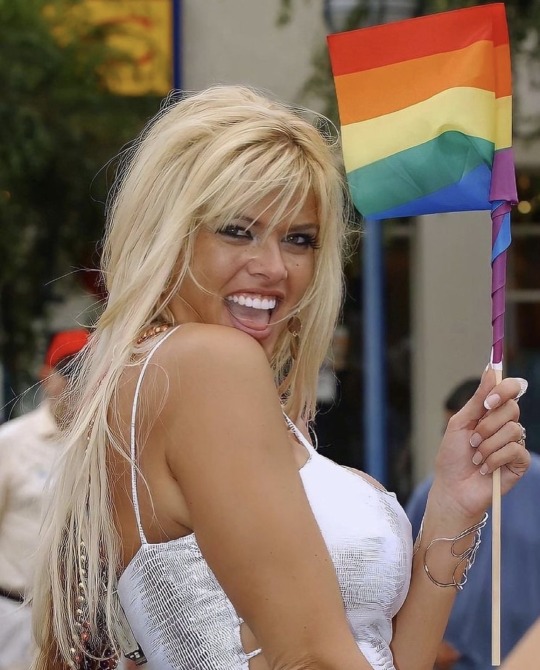
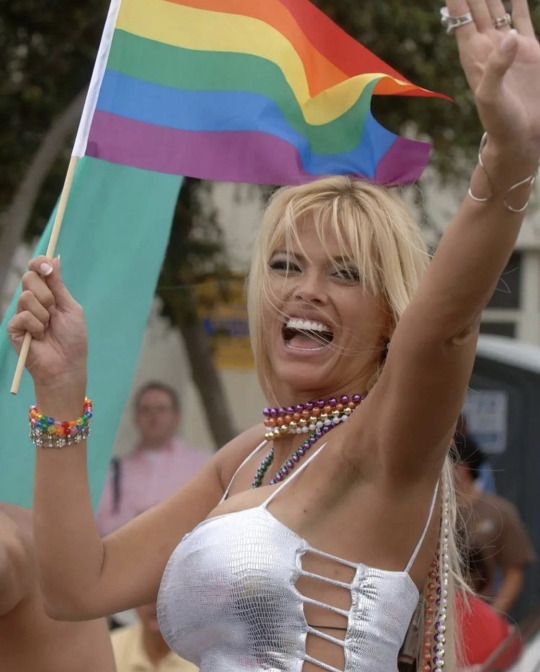
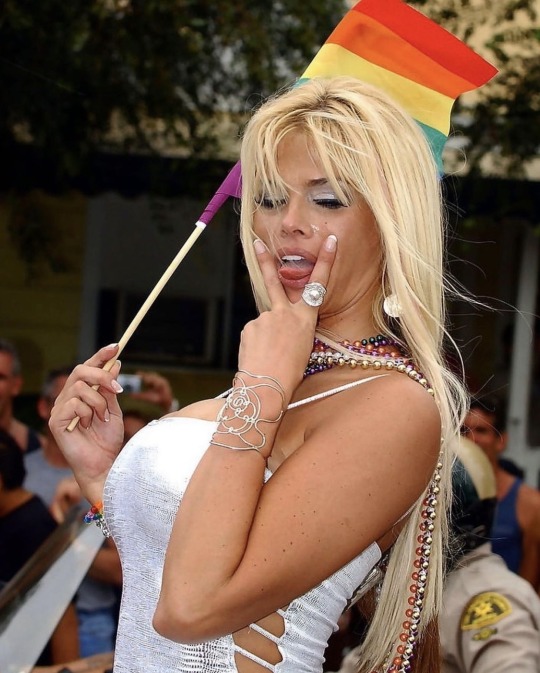
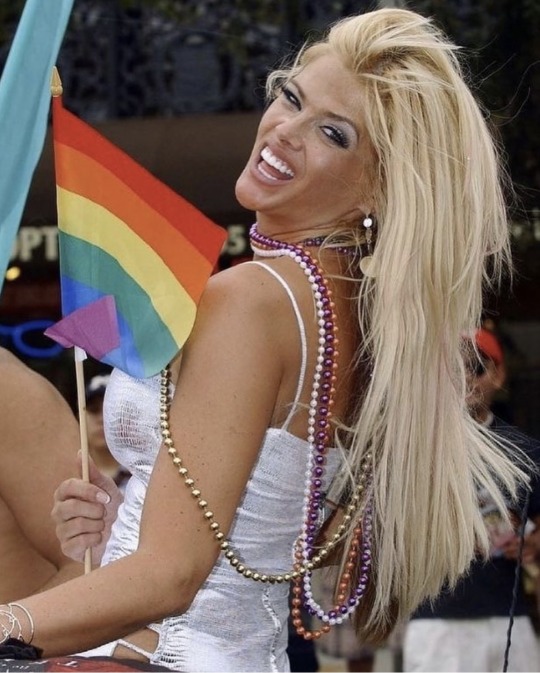
Anna Nicole Smith at a Pride Parade in West Hollywood LA, in 2005 ✨
#anna nicole smith#2005#celebrities#iconic#pop culture#hollywood#fashion#movies#2000s#2000s nostalgia#2000s aesthetic#2000s scene#2000s style#mid 2000s#2000s fashion#2000s movies#2000s core#2000s icons#2000s internet#2000s music#2000s model#2000s memories#00s
118 notes
·
View notes
